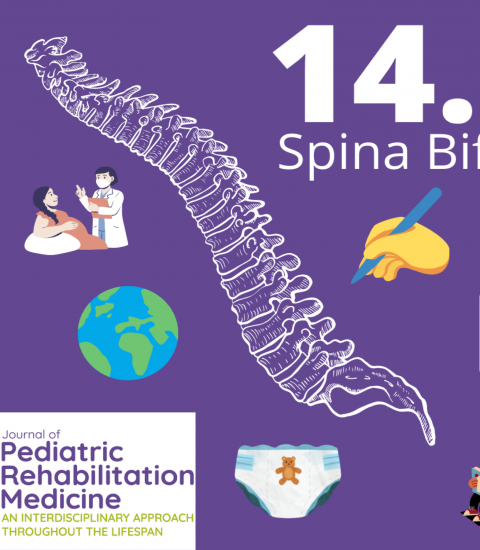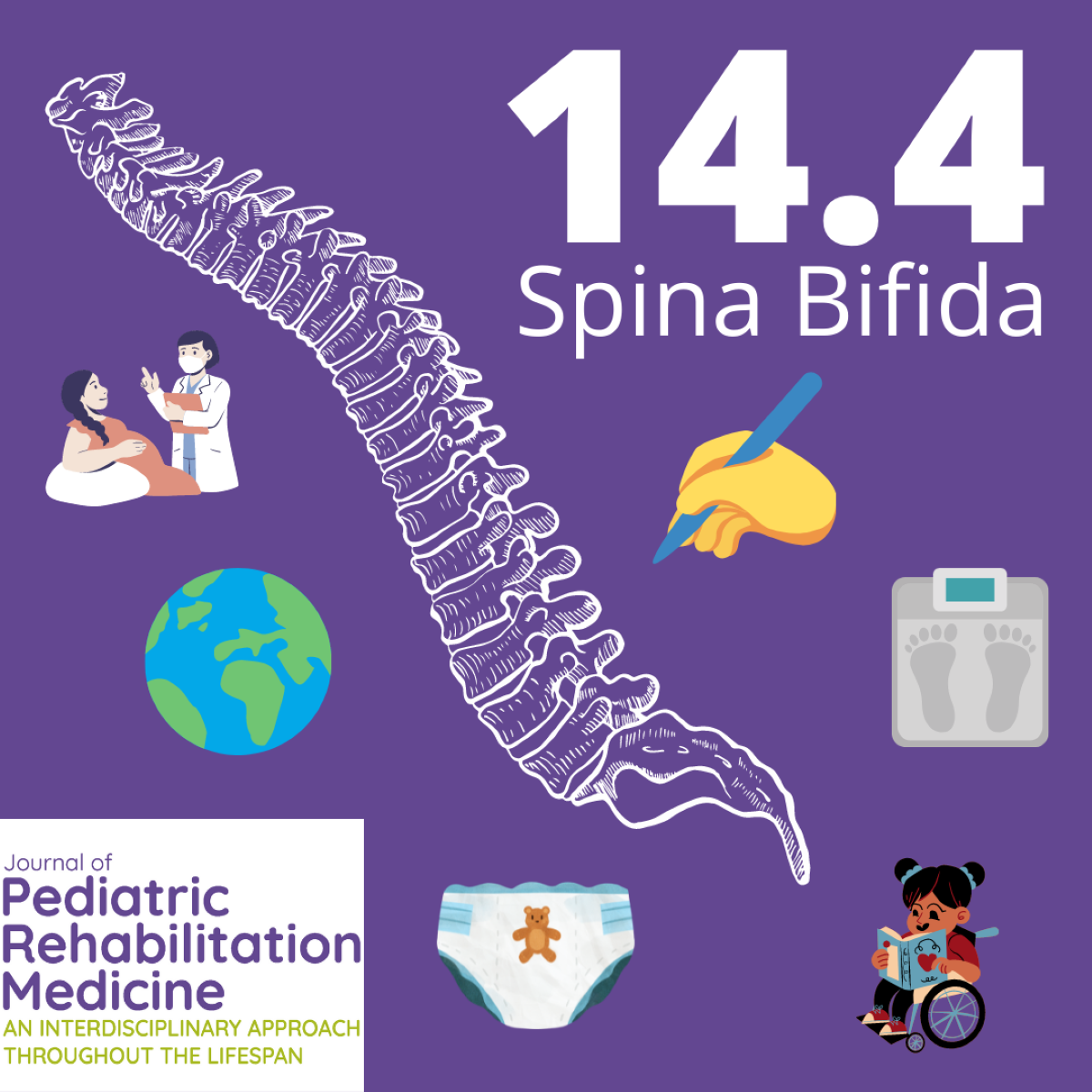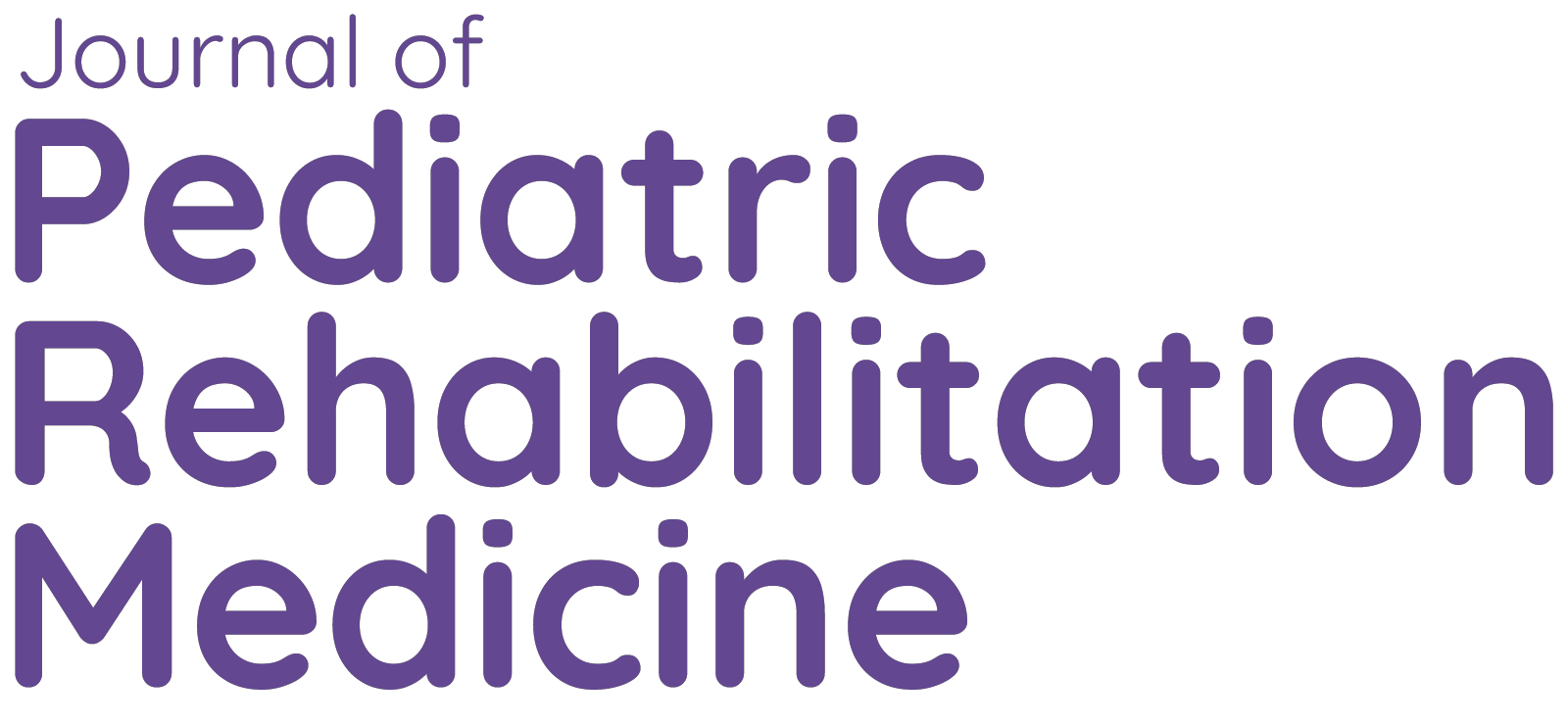
9 February, 2022 – Spina bifida (SB) is a neural tube defect affecting multiple areas of an individual’s life. Globally, nearly 300,000 babies are born with neural tube defects including SB each year. This burden of disease affects individuals regardless of where they are born or live. Continuing to serve as a catalyst for SB care, education, and research across the SB population in a global context, this annual special issue of the Journal of Pediatric Rehabilitation Medicine (JPRM) presents a series of important updates about the latest developments in the field.
This special issue of the Journal of Pediatric Rehabilitation Medicine showcases important new work on recent advances in spina bifida care management, education, and research, inspiring the care community to “think globally, act locally”
This special issue, guest-edited by Jonathan Castillo, MD, MPH, Heidi Castillo, MD, Judy K. Thibadeau, RN, MN, and Timothy Brei, MD, contains insightful articles by noted experts showcasing innovative new work, ranging from self-management topics such as bowel and bladder care and pain management, to access and care coordination. It also addresses current issues such as the growing population of adults and their need for appropriate transition from pediatric clinics, reproductive health, COVID-19 immunization uptake, and the challenges that face Latinos.
“Childhood-onset disabilities such as SB continue to have widespread global significance,” explained co-Guest Editor Jonathan Castillo, MD, MPH, Meyer Center for Developmental Pediatrics, Department of Pediatrics, Texas Children’s Hospital and the Baylor College of Medicine, Houston, TX, USA. “Worldwide, in spite the of wide-ranging introduction of folic acid fortification programs, neural tube defects remain a substantial cause of the pediatric global burden of disease.”
“In the United States, Latinos consistently have a higher birth prevalence of SB compared with other ethnic groups,” added co-Guest Editor Timothy Brei, MD, Department of Pediatrics, Division of Developmental Medicine, Seattle Children’s Hospital and the University of Washington School of Medicine, Seattle, WA; and Spina Bifida Association, Arlington, VA, USA. “There are many challenges that besiege those living with SB, from limited access and fragmented care to scarcely available adult services. Innovative approaches are needed to provide inclusion and active involvement of parents of children and adults with SB from all communities, such as community-based participatory research and culturally competent learning collaboratives.”

Topics covered in this issue include
• Site, frequency, and duration of pain in young children with SB
• Burden of disease and medication in medically complex adolescents in transitional care
• COVID-19-related care during the transitional years
• Self-management, independence, and quality of life in adolescents and young adults, and successful transition from childhood, which requires input from multiple healthcare specialties
• Experience of reproductive health and pregnancy of women with SB
• Association between race and in-hospital outcomes following urologic surgery
• Urodynamic utilization in the adult SB patient
• Management of neurogenic bowel dysfunction
• Hand dexterity
• Accuracy of body mass index in categorizing weight status in children with intellectual and developmental disabilities
• Decreasing missed appointments after hiring a clinic coordinator using medical informatics
• Scope of care in the first four years of life for individuals born with myelomeningocele
• Education and resources for primary care providers
The COVID-19 pandemic has posed distinctive challenges to adolescents and young adults living with SB, especially those from ethnic minority populations. Latino and Black populations with SB experience reductions in life expectancy at birth greater than twice the reduction experienced by the White population. In a featured article, Jonathan Castillo and colleagues describe the development of a customized electronic health record to leverage registry data to promote and quantify COVID-19 vaccination uptake among these populations and the lessons learned, concluding that this is feasible.
“We need to think globally and act locally,” commented Dr. Castillo. “Hopefully this approach will support the scaling-up of vaccination delivery across the globe for adolescents and young adults with SB as they transition to adult-centered care, while providing culturally appropriate transition policies and services for individuals with neurodevelopmental disabilities.”
“From limited access and fragmented care to scarcely available adult services, many are the challenges that besiege those living with SB across their lifespan,” noted co-Guest Editor Heidi Castillo, MD, Meyer Center for Developmental Pediatrics, Department of Pediatrics, Texas Children’s Hospital and the Baylor College of Medicine, Houston, TX, USA. “Yet, there are equally many professionals who are dedicated to the care of this population. While upholding human dignity, their passion is an encouragement. They are compassionately committed, not only to those they serve, but also to developing and upholding best clinical practices in the multidisciplinary care they provide.”
“Care for people with SB does not improve without ongoing education and research,” added co-Guest Editor Judy K. Thibadeau, RN, MN, Spina Bifida Association, Arlington, VA, USA. “The Spina Bifida Association is committed to the inclusion and active involvement of parents of children and adults with SB in determining how and for what to advocate, what and for whom education is needed, what support is needed and how it can be delivered most effectively, and on which topics investigation is warranted.”
“The annual JPRM special issue dedicated to spina bifida is an amazing effort with a wealth of information about transitional issues,” said Editor-in-Chief Elaine Pico, MD, UCSF Benioff Oakland. “Sara Tinsley, our Managing Editor, and I meet with the team of special Guests Editors for almost a year in advance as the special issue meticulously develops and expands to advance the care and meet the needs of the SB population and their providers.”
###
NOTES FOR EDITORS
Special Issue: Spina Bifida in a Global Context
Journal of Pediatric Rehabilitation Medicine, Volume 14, Issue 4
Guest Editors: Jonathan Castillo, MD, MPH, Heidi Castillo, MD, Judy K. Thibadeau, RN, MN, and Timothy Brei, MD
Published by IOS Press
The issue is available at https://content.iospress.com/journals/journal-of-pediatric-rehabilitation-medicine/14/4.
Featured article
“Think globally, act locally: Quality improvement as a catalyst for COVID-19 related care during the transitional years,” by Jonathan Castillo, Ellen Fremion, Melissa Morrison-Jacobus, Rhonda Bolin, Ana Perez, Eva Acosta, Kelly Timmons, and Heidi Castillo (https://doi.org/10.3233/PRM-210119). This article is openly available at: https://content.iospress.com/articles/journal-of-pediatric-rehabilitation-medicine/prm210119.
Full text of the articles is available to journalists upon request. Contact Diana Murray, IOS Press, at +1 718-640-5678 or d.murray@iospress.com for additional information. Journalists who wish to interview the Guest Editors or authors should contact Jonathan Castillo, MD, MPH, at jcporter@texaschildrens.org.
ABOUT THE JOURNAL OF PEDIATRIC REHABILITATION MEDICINE
Editor-in-Chief: Elaine L. Pico, MD, FAAP, FAAPM&R, UCSF Benioff Children’s Hospital Oakland
The Journal of Pediatric Rehabilitation Medicine (JPRM): An Interdisciplinary Approach is designed to parallel the multidisciplinary teams caring for children, adolescents, and adults with childhood-onset physical disabilities and complex care needs worldwide. Published quarterly, topics include, and are not limited to, cerebral palsy, traumatic brain injury, spinal cord injury, spina bifida, limb deficiency, muscular dystrophy, stroke, cancer, developmental delays, and rare disorders. Furthermore, the journal welcomes papers dedicated to pediatric rehabilitation from a global health perspective. https://jpedrehabmed.com
ABOUT IOS PRESS
IOS Press is an independent international scientific, technical, medical (STM) publishing house established in 1987 in Amsterdam. We produce around 90 journals and 70 books annually in a broad range of subject categories, primarily specializing in biomedical and life sciences (including neurosciences, medical informatics, cancer research, rehabilitation) and physical sciences (including computer sciences, artificial intelligence, engineering). In addition, we offer specialized services that support scientific advancement. www.iospress.com
